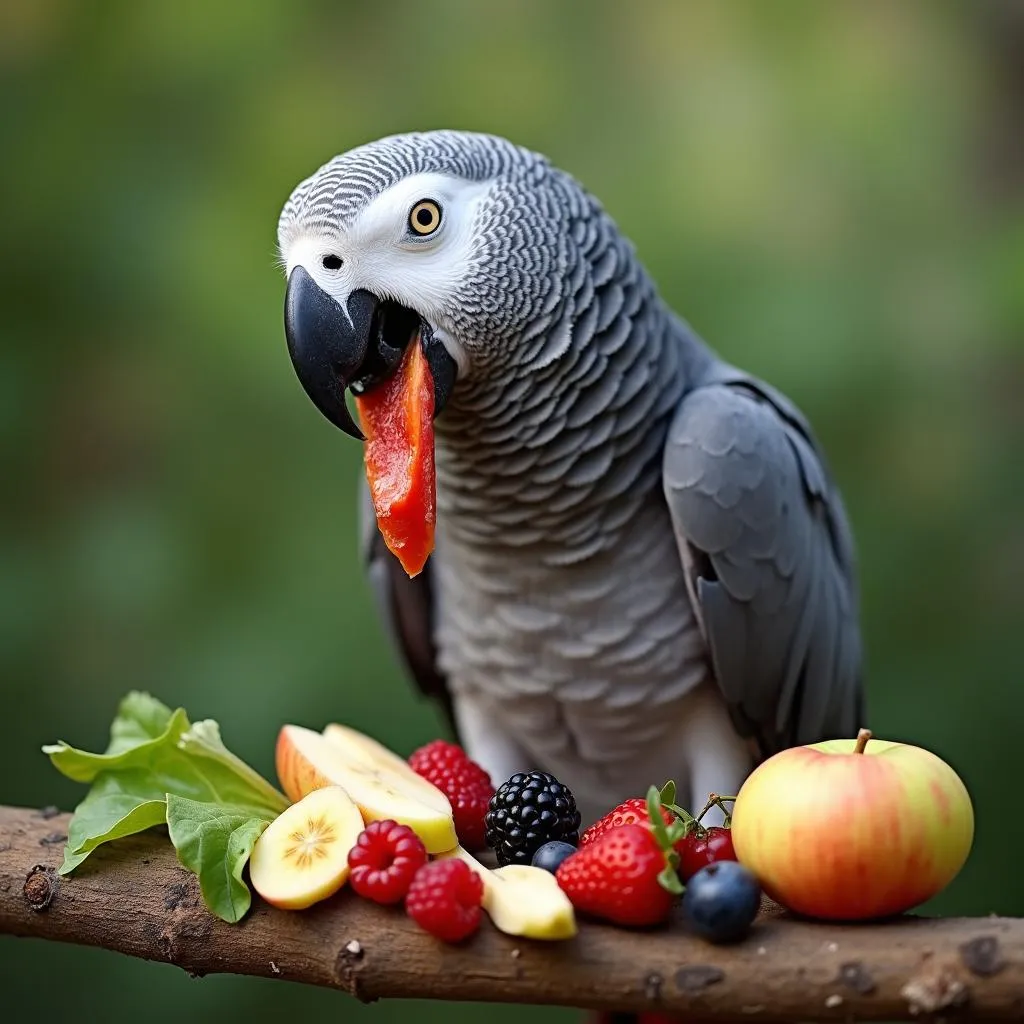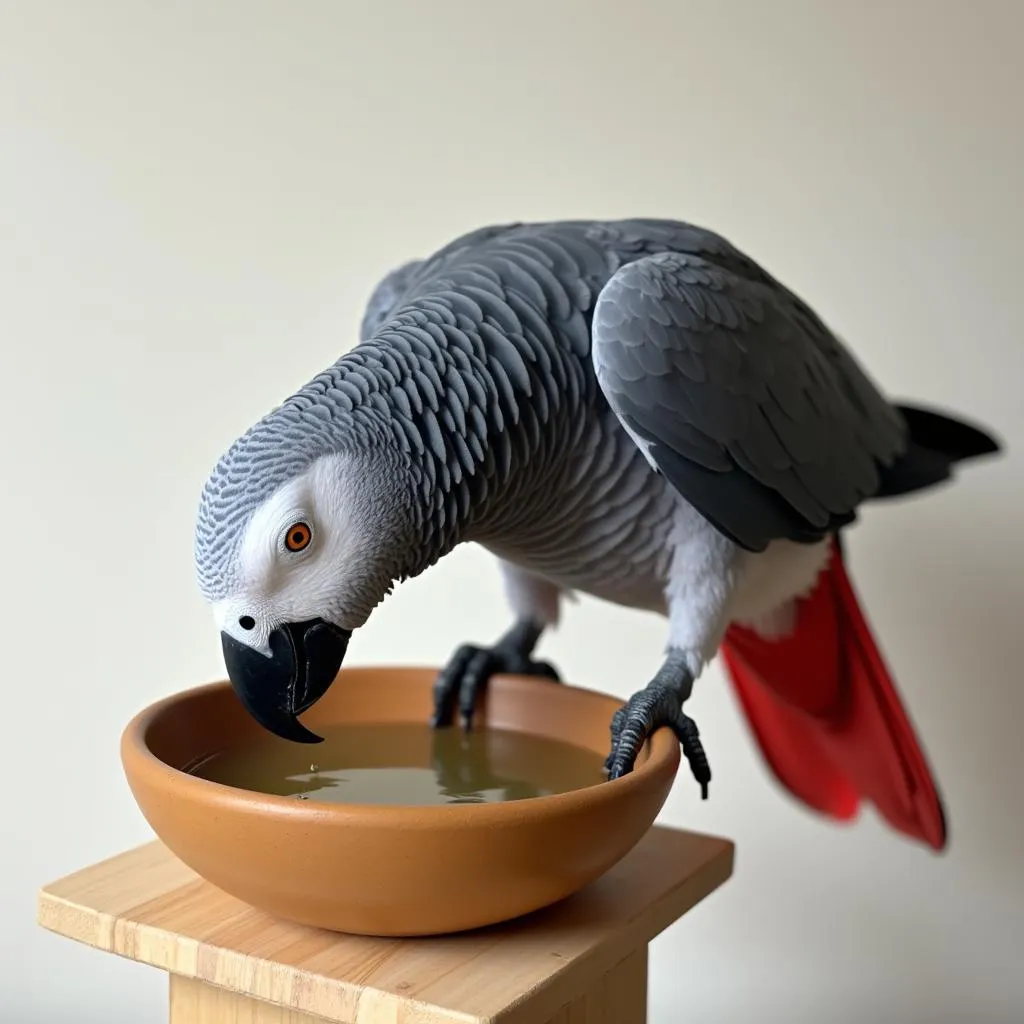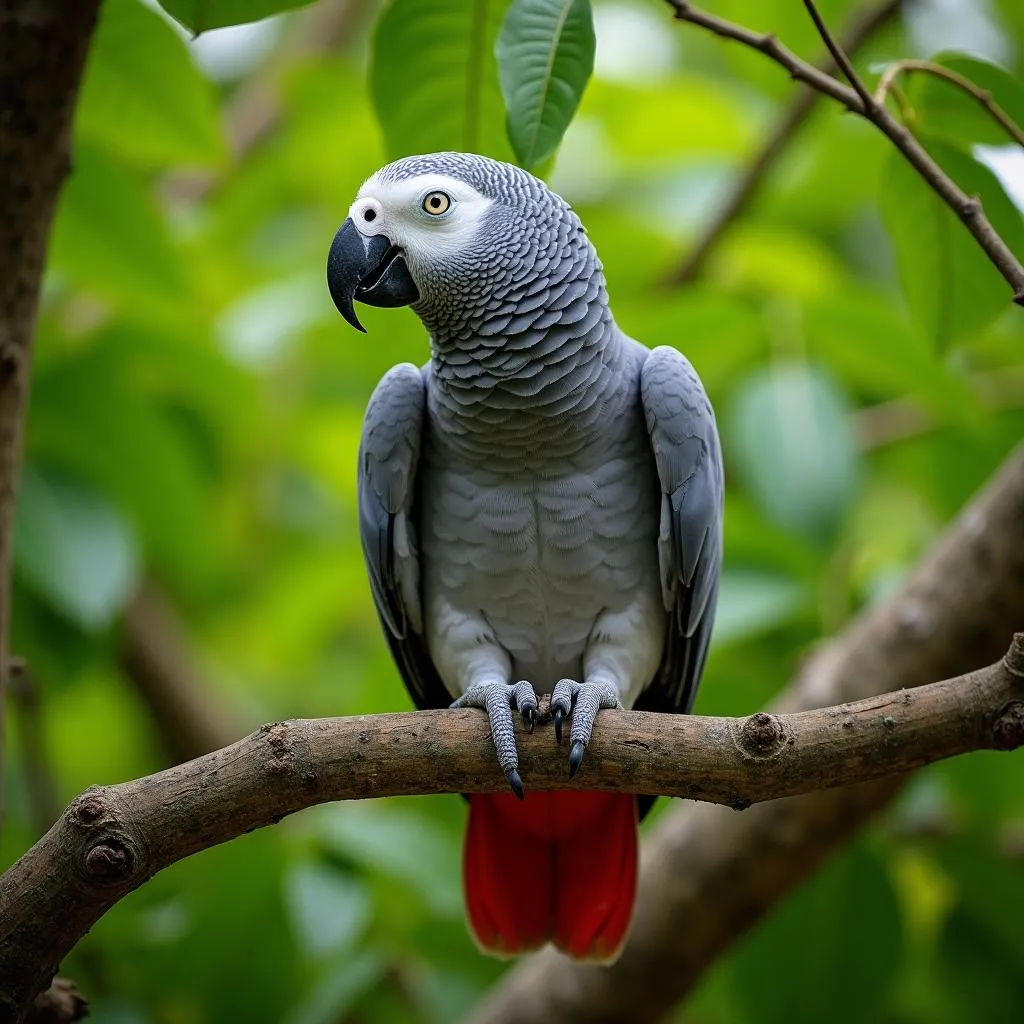The Ultimate African Grey Parrot Food List: A Guide to a Healthy & Happy Bird
Owning an African Grey parrot is a rewarding experience. These intelligent creatures are known for their incredible mimicking abilities and can become lifelong companions. Providing a proper diet is crucial for their health, longevity, and overall well-being. This comprehensive guide provides an African Grey Parrot Food List that covers everything you need to know to keep your feathered friend healthy and happy.
What Do African Grey Parrots Eat in the Wild?
In their natural habitat, African Grey parrots enjoy a diverse diet consisting of:
- Fruits: Figs, berries, palm fruits, and mangoes are some of their favorites.
- Seeds & Nuts: They forage for a variety of seeds and nuts, including palm nuts, which provide essential fatty acids.
- Vegetables: Leafy greens, sprouts, and blossoms offer essential vitamins and minerals.
- Insects & Larvae: African Greys occasionally eat insects and their larvae, which provide protein.
Essential Foods for Your African Grey Parrot
While replicating their exact wild diet is difficult, you can provide a nutritionally complete diet by incorporating a variety of fresh foods and high-quality parrot pellets. Here’s a breakdown of essential food groups:
1. High-Quality Parrot Pellets (60-70% of the diet)
- Why are pellets important? Pellets are formulated to provide a balanced mix of vitamins, minerals, and nutrients that African Greys need.
- Choose pellets specifically designed for African Greys.
- Avoid pellets with artificial colors, flavors, and preservatives.
2. Fresh Fruits (20-30% of the diet)
- Variety is key! Offer a wide range of fruits like:
- Apples (remove seeds)
- Bananas
- Berries (strawberries, blueberries, raspberries)
- Grapes (cut in half)
- Mangoes
- Melons
- Oranges
- Papaya
- Peaches
- Pears
3. Vegetables (10-15% of the diet)
- Leafy greens are essential. Offer:
- Kale
- Spinach
- Collard greens
- Romaine lettuce
- Other vegetables to include:
- Broccoli
- Carrots
- Celery
- Corn on the cob
- Green beans
- Peas
- Sweet potatoes
- Zucchini
 African Grey Parrot Enjoying Fruits and Vegetables
African Grey Parrot Enjoying Fruits and Vegetables
Foods to Avoid
Certain foods can be toxic or harmful to African Greys. Never feed your parrot:
- Avocado
- Chocolate
- Caffeine
- Alcohol
- Salt
- Sugar
- Processed foods
- Mushrooms
- Onions
- Garlic
- Rhubarb
Additional Nutritional Needs
1. Water
- Fresh, clean water should be available at all times.
- Change the water daily to prevent bacterial growth.
2. Calcium
- Calcium is crucial for strong bones and healthy eggs.
- Provide a cuttlebone or calcium block.
- Calcium-rich foods:
- Dark leafy greens
- Broccoli
- Tofu
3. Vitamin D
- Vitamin D helps with calcium absorption.
- Exposure to natural sunlight is best.
- Provide a full-spectrum bird lamp if natural sunlight is limited.
 African Grey Parrot Drinking Water
African Grey Parrot Drinking Water
Tips for Feeding Your African Grey Parrot
- Offer food in a variety of ways. Use bowls, foraging toys, and skewers.
- Introduce new foods gradually.
- Wash all fruits and vegetables thoroughly.
- Remove uneaten fresh food daily to prevent spoilage.
- Monitor your parrot’s weight. Adjust food portions as needed.
FAQs about African Grey Parrot Food
What is the best food for an African Grey parrot?
A diet consisting of high-quality parrot pellets (60-70%), fresh fruits (20-30%), and vegetables (10-15%) is ideal.
Can African Grey parrots eat seeds?
Yes, seeds can be offered as a treat, but they shouldn’t make up a large portion of the diet as they are high in fat.
How often should I feed my African Grey parrot?
Offer fresh food and pellets daily. Replenish water bowls throughout the day.
Can African Grey parrots eat peanuts?
Yes, unsalted peanuts in the shell are a good source of protein and healthy fats. Offer them in moderation.
What are signs of a healthy African Grey parrot?
A healthy parrot will have bright eyes, smooth feathers, a clean beak, and will be active and alert.
 African Grey Parrot in Natural Habitat
African Grey Parrot in Natural Habitat
Conclusion
Providing a balanced and nutritious African Grey parrot food list is essential for their overall health and well-being. By following the guidelines in this comprehensive guide, you can ensure that your feathered companion enjoys a long, healthy, and happy life. Remember, a varied diet is key, and always consult with an avian veterinarian for personalized dietary advice.
For further assistance with your African Grey parrot’s diet and care, please don’t hesitate to contact us:
Phone: +255768904061
Email: kaka.mag@gmail.com
Address: Mbarali DC Mawindi, Kangaga, Tanzania
Our dedicated team of bird experts is available 24/7 to answer your questions and provide guidance.

